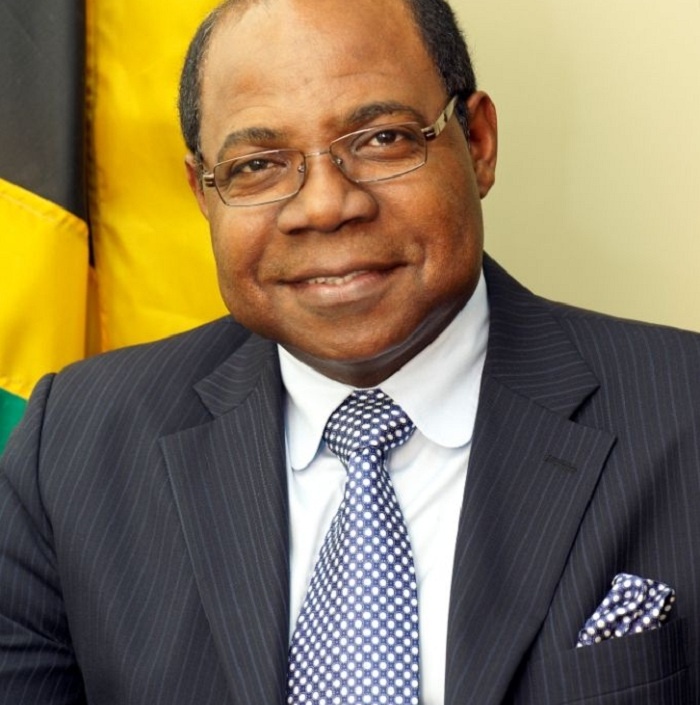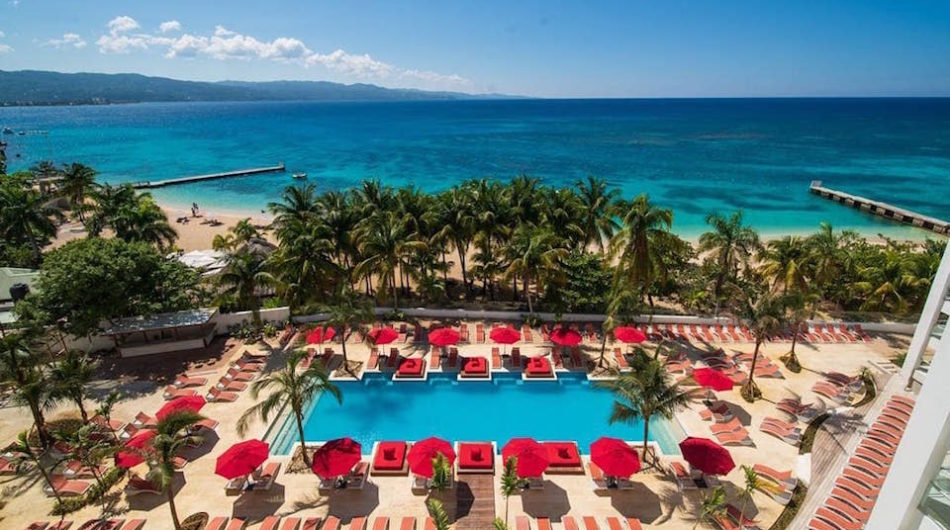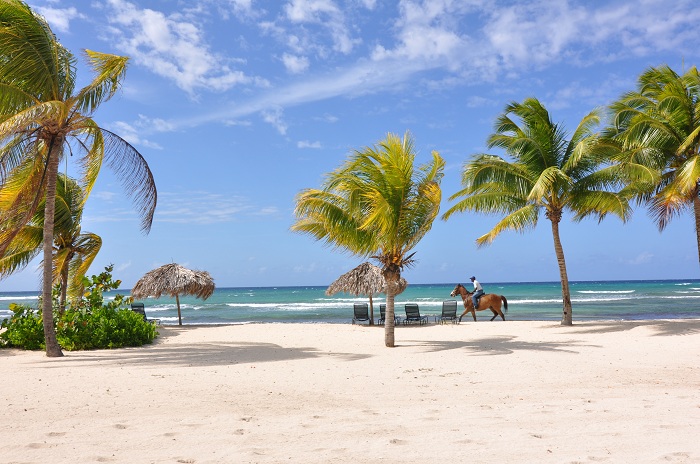
Breaking Travel News interview: Edmund Bartlett, minister of tourism, Jamaica
Jamaica is something of a bellwether for tourism in the Caribbean, usually attracting one in ten of the holidaymakers who visit the region each year.
As such, the island has been hard hit by the Covid-19 pandemic, with numbers tumbling in this year.
But chatting to tourism minister, Edmund Bartlett, there is a sense that the worst is past and that the destination is in a position to rebuild as we move into 2021.
“We have been tracking the figures, as we do, and we have welcomed just over one million guests this year, and they have spent just over US$1 billion,” he tells Breaking Travel News.
“Both of these figures are around a quarter of what we would have hoped for.
“But there were three months when we had zero arrivals, and we have been recovering slowly since the middle of June.
“We are not yet back at levels we saw last year, but we are now in a place where we can see it will be possible to get back to our previous highs over time.”
ADVERTISEMENT
A lot of the optimism surrounding the sector comes from the protocols put in place early in the pandemic to rebuild trust with travellers.
The island established a ‘resilience corridor’ as its borders reopened during the summer, in effect creating a safe zone for tourism.
This has concentrated the industry into a manageable geographic area, while also allowing authorities to ensure new hygiene protocols are rigorously implemented.
Bartlett explains: “The resilience corridor has been key to our reopening – creating a tourist zone.
“Fortunately, geography helped here; the way Jamaica is configured means nearly all of the tourism assets are on the north coast.
“These are divided from the community by a single highway that runs from Negril to Port Antonio – everything windward of that is included in the corridor.
“This proved to be something close to a cordon sanitaire, though not quite as we did not believe travellers should be totally locked away from the rest of the population.
“Only one per cent of Jamaican people live within that corridor, while it has 85 per cent of the tourism assets.
He adds: “It has been successful in limiting the spread of Covid-19 – there has not been a single infection within the resilience corridor.
“This will provide confidence in the market - it shows that in Jamaica we care for you, we educate our people, we have put processes in place to ensure safety.”

A new insurance scheme – entitled Jamaica Cares - is also in the process of being rolled out, again working to boost confidence among visitors.
“Jamaica Cares is a form of entry insurance, designed to protect travellers who come to the island, and to provide a response to Covid-19,” explains the minister.
“We are rolling it out now to include every visitor, and it covers them from when they leave their home, throughout their trip and then until they are back home again.
“The fee will be around US$40 initially, but we hope this will fall over time.
“We have worked with the insurers to spread the burden of the pandemic – and that is what tourism is about, coming together and sharing responsibility.
“There have been suggestions this programme should be adopted industry-wide, especially among small, highly-tourism dependant countries.
“Eleven of the top 20 most tourism-dependant countries in the world are here in the Caribbean, and this system could work across the region.”
Of course, with global source markets in turmoil, 2020 has been a tough year for Jamaica, with job losses in the industry.
While short-term measures were put in place earlier in the pandemic to tide workers over financially, the focus has now shifted to preparation for the future.
Bartlett continues: “We have lost jobs, of course, perhaps 150,000 roles were lost earlier this year.
“But the level of training we were able to achieve has sought to offset some of the hardship.
“Over 50,000 people have been reached virtually, working toward globally accepted accreditations in preparation for the return of the market.
“They are now able to offer the best quality experiences.
“We have not allowed this period to be one where we are down and distraught, we have used it to rebuild.”

The process of restoring the tourism sector in Jamaica may well take a number of years, however, with minister Bartlett arguing news of a vaccine provides hope, but nothing more.
“While there are green shoots now with the vaccine, this will not be a short process,” he adds.
“It might take two, three years for the world to return to being comfortable with travelling again - in my estimation, full recovery will take us into 2024.
“The vaccine is welcome news, but people will not all embrace it – there will be a period of watching and waiting, checking for side effects, for example.
“When the outcomes are more predictable, only then will the world come back to something like normal.”
The cruise sector too is facing challenges, despite the recent lifting of the ‘no sail’ order in the United States.
Minister Bartlett adds: “In terms of cruise, the Centres for Disease Control & Prevention (CDC) has given the go ahead to sail again, but has imposed some tough new conditions.
“Cruise lines have been invited to offer familiarisation trips, but we have already seen snags, with SeaDream 1 reporting five cases in Barbados.
“These pushbacks are going to slow recovery in some areas, and there is already more cautiousness in returning to sailing.
“This will be detrimental to the economies of the Caribbean because cruising provides the most immediate convertibility of tourism into the local community.
“In the few hours that a cruise ship is docked, millions of dollars can be spent across a destination.”
One bright spot is expected to be the been the change of leadership in the United States, with hope a more effective Covid-19 containment strategy can now be put in place.
“If they are able to get a handle on the pandemic in the United States, it will be hugely beneficial to the tourism market in the Caribbean,” explains the minister.
“More than 60 per cent of our guests come from North America.
“This is an elixir we are waiting for; it will mark the end of many of our problems.
“But, of course, we must continue to diversify our source markets and to build connectivity.
“We have to ask ourselves what state the airline industry will emerge from the pandemic in – we have seen all sorts of rightsizing and downsizing.
“Brands we have worked with for a long time, we may not see any more.”
In closing, minister Bartlett says other challenges lurk for the tourism sector in Jamaica, but through constant evolution they can be overcome.
He concludes: “It is it important to remember that Covid-19 is only one of the issues we have to confront.
“Climate change has not gone away, for example, terrorism is still a challenge for many destinations.
“The pandemic has also seen a shift toward digitalisation, and this could pose long-term challenges to the tourism sector.
“Right now we are facing the longest-ever hurricane season, coming up to six months.
“We started in July, with the season potentially running into 2021, when it used to end into October.
“An economic crunch is also sure to follow the end of the pandemic.
“We need to be aware of all these changes, not just the threat from the Covid-19 virus.
“The tourism industry must continue to plan, to develop, mitigate and manage – building resilience will become a major watchword for the future.”
More Information
Minister Bartlett was recently honoured with the prestigious Gusi Peace Prize from the Gusi Foundation of Manila, Philippines, in recognition of his contribution to global tourism.
It caps a run of success, with Jamaica also recognised with the title of Caribbean’s Leading Destination earlier this year by the World Travel Awards.
To find out more about visiting, head over the official website.
Chris O’Toole

